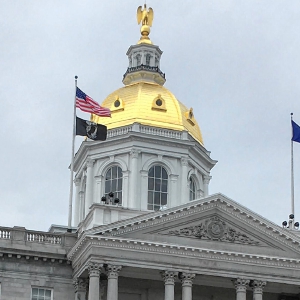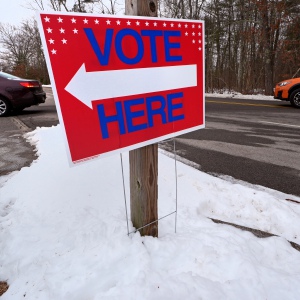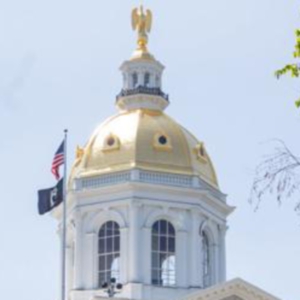Bill to enshrine abortion rights into state law heard in Senate committee
| Published: 02-01-2023 4:57 PM |
When Rebecca Perkins Kwoka first discussed access to abortion in the New Hampshire Senate last year, she was 24 weeks pregnant.
The 24-week mark holds significance in New Hampshire – it’s the timeframe in which abortion is no longer legal in the state barring rare medical circumstances
“I was experiencing firsthand how frightening it is to think you won’t be allowed the full range of medical care that was available to me previously,” she said. “We must act now to ensure that women in New Hampshire are protected.”
Now, the second-term Senator, a mother of two who represents several Seacoast communities, is the prime sponsor of a bill that would enshrine the right to an abortion in state law.
The bill, SB 181, known as the Access to Abortion-Care Act, codifies that abortion in New Hampshire would remain legal up until 24 weeks of pregnancy. The focus of the bill is to clarify abortion rights in the state and prevent any further changes.
“This bill is not radical. It does not even change state law,” said Perkins Kwoka, testifying in front of the Senate Judiciary Committee.
An identical bill, HB 88 is also introduced in the House.
After the U.S. Supreme Court overturned Roe v. Wade in June, access to abortion was left for individual states to decide.
Article continues after...
Yesterday's Most Read Articles
In November, voters in California, Michigan and Vermont approved ballot measures that included the right to an abortion in their state constitutions.
A constitutional amendment to do the same thing here is also proposed this legislative session. The amendment would establish “the right of all persons in the state to personal reproductive autonomy.”
Both HB 88 and SB 181 aim to achieve the same outcome without altering the state constitution.
For Janet Perkins-Howland, an obstetrics and gynecology specialist in Dover, this bill reaffirms reproductive justice.
This idea of reproductive justice entails supporting the decision to both have a child, and not have a child, she said. The mission statement of her practice is to support people with patience and compassion.
“That’s what I try to do in my professional life, and that’s what I hope to implore you to do as a legislative body,” she said.
A key role in Perkins-Howland’s job is sharing information so patients can make an education decision for themselves.
The right to an abortion is what allowed Amanda Toll to have a child when she was ready, the Democratic State Representative from Keene said.
Toll testified in front of the committee with her 8-week-old son Jordan, on her shoulder.
“I speak in support of this legislation not just as a legislator, but as a mother and someone who earlier in my life needed abortion care,” she said. “I had an abortion when I was a teenager. Because I was able to have children when I was ready, and not before that, I have been able to become a state representative.”
Senator Becky Whitley, a Hopkinton Democrat, highlighted that the language in the current state law centers around prohibition and criminal penalties, not affirmative rights.
This bill would add relief in reaffirming these rights in state law, she said.
This is not the first time New Hampshire legislators have considered whether or not to enshrine abortion rights. Last year, the Access to Abortion-care Act was proposed in the House and Senate and tabled by both chambers.
Further changes to state law related to abortion are unnecessary, said Laura El-Azem, a resident of Londonderry. She said an individual has the ability to be pro-choice and in favor of some limits on when abortion can take place.
In her opinion, there were no rights lost in Supreme Court ruling, as abortion was never a constitutional provision.
“To suddenly put abortion into law is going to muddy the waters,” she said. “The Constitution makes no reference to abortion.”
On Feb. 15, the House Judiciary Committee will hold a hearing for both HB 88 and the proposed constitutional amendment, which requires 60 percent support in both the Senate and House chambers. It then would be placed on general election ballots in November of 2024, with a two-thirds majority required to pass.

 Two democrats with parallel views run for same State Senate seat
Two democrats with parallel views run for same State Senate seat House passes bill removing exceptions to state voter ID law
House passes bill removing exceptions to state voter ID law League of Women Voters suing over AI robocalls sent in NH
League of Women Voters suing over AI robocalls sent in NH As NH lawmakers eye statewide housing solutions, local control remains a barrier
As NH lawmakers eye statewide housing solutions, local control remains a barrier
